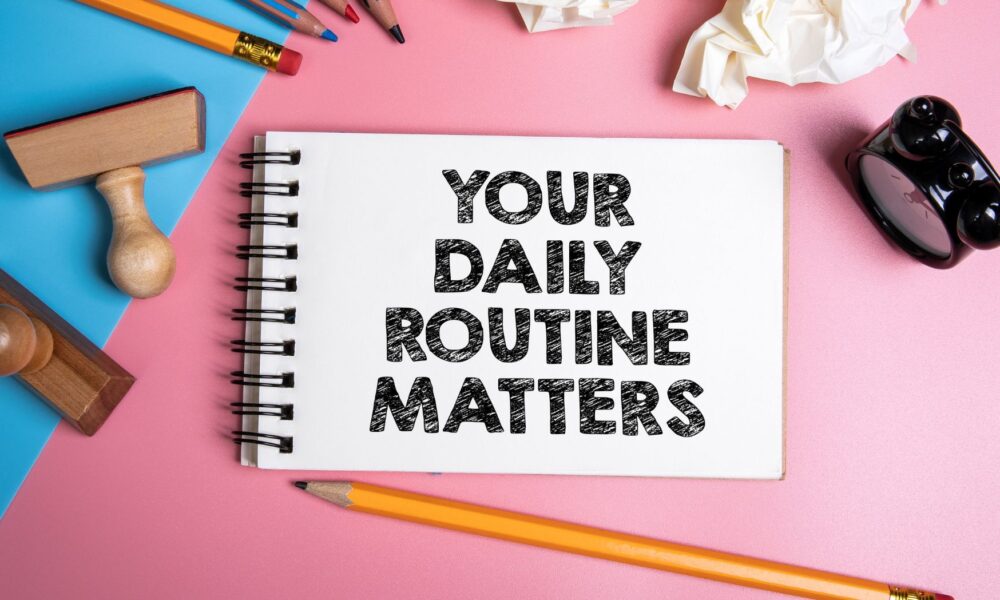Last Updated on July 8, 2025 by Kavya K
The hours after the workday ends often determine how successful and balanced your next day will be. While many people focus on crafting their perfect morning routine, the power of a productive evening routine is often overlooked. An intentional evening schedule not only helps in winding down and reducing stress but also plays a critical role in setting the tone for the following day. With work, family, health, and personal growth all demanding attention, a thoughtful end-of-day routine can help restore energy, improve sleep quality, and provide clarity on priorities for tomorrow. This article will guide you through a comprehensive evening routine that enhances productivity and well-being, helping you wake up prepared, motivated, and in control of your goals.
Transition Gracefully from Work Mode to Personal Time
The first step in building a successful evening routine is creating a clear boundary between work life and personal life. For those working remotely or managing flexible schedules, this boundary can often be blurred. As your workday ends, commit to closing your laptop, logging out of work apps, and physically distancing yourself from your workspace. Consider having a short transition ritual to symbolize the end of the day this could be a five-minute meditation, a cup of tea, a short walk outside, or a few deep breaths while listening to calming music. This helps your brain switch gears and reduces the lingering stress of unfinished tasks. Making this a daily habit ensures you don’t carry work-related anxiety into your personal time, allowing you to be more present with your family or in your own relaxation rituals.
Reflect on the Day’s Achievements and Challenges
Taking a few minutes to reflect on your day can significantly improve your self-awareness and focus. Find a quiet moment in the early evening to jot down what you accomplished, what didn’t go as planned, and how you felt throughout the day. This practice doesn’t require lengthy journaling—just a few sentences are enough. Reflecting helps clear your mind, prevents mental clutter, and can reduce overthinking when trying to fall asleep later. This moment of introspection not only helps you process your thoughts but also lets you celebrate small wins, learn from mistakes, and mentally close the chapter on the day. Over time, this habit can also improve emotional regulation and help you make better decisions in both personal and professional spheres.
Plan and Prioritize for the Next Day
One of the most powerful productivity boosters is planning your next day the night before. When you take just ten to fifteen minutes in the evening to outline tomorrow’s top tasks, meetings, and goals, you relieve yourself from early morning decision fatigue. Start by listing three high-priority tasks that will define your productivity for the next day. Then schedule smaller or less urgent tasks around them. Preparing your to-do list before bed ensures that you start your day with clarity and direction, rather than wasting time figuring out what needs to be done. You may also want to review your calendar or time-block your schedule to visualize how your day will flow. This proactive step not only increases focus but also improves time management and work-life balance.
Tidy Up Your Space for a Fresh Start
Cleaning your environment is more than just a chore it’s a mental reset. A cluttered space often leads to a cluttered mind. Spend 10–15 minutes each evening organizing your workspace, clearing dishes, tidying the living room, and prepping anything you need for the next morning. If you work from home, resetting your workspace is especially important so you start the next day with a clean, inviting environment. Consider laying out your clothes for the next day, preparing your lunch, or getting your gym gear ready if you plan to work out in the morning. These small, seemingly simple tasks reduce stress in the morning and free up valuable decision-making energy. A clean space promotes calmness, clarity, and a sense of control, all of which are essential for staying productive and grounded.
Focus on Nourishing, Mindful Eating
Dinner is a crucial time to refuel your body and bond with others, yet it often becomes rushed or distracted with screens and stress. Use your evening meal as an opportunity to slow down, be present, and eat mindfully. Choose foods that are both nutritious and satisfying lean proteins, vegetables, healthy fats, and complex carbohydrates can all contribute to better sleep and sustained energy. Avoid excessive caffeine or sugar in the evening, as they can disrupt your sleep cycle. Eating dinner at least two to three hours before bed allows your body enough time to digest, which promotes better rest. Consider eating with family or friends without screens to foster meaningful connections and mental relaxation. Turning mealtime into a mindful practice reinforces discipline and presence, adding value to your overall evening experience.
Limit Screen Time and Reduce Stimulation
In today’s hyperconnected world, it’s easy to fall into the habit of scrolling through social media or watching back-to-back episodes on streaming platforms. However, screen exposure—especially blue light from phones, laptops, or TVs can interfere with your body’s melatonin production and make it difficult to fall asleep. To counter this, establish a digital wind-down period at least an hour before bed. Use this time for screen-free activities that relax your mind, such as reading a book, journaling, taking a warm shower, or practicing light stretches or breathing exercises. If you must use devices at night, consider using blue light filters or apps that reduce screen brightness. Setting these digital boundaries supports mental recovery, reduces anxiety, and makes your transition to bedtime smoother and more intentional.
Engage in Relaxation and Self-Care Practices
Self-care is not a luxury it’s a necessity for sustained productivity and mental health. Use your evenings to check in with your physical and emotional needs. This could involve anything from applying a skincare routine, soaking in a warm bath, using essential oils, or practicing meditation and gratitude. You might also enjoy activities like listening to soothing music, journaling about what you’re thankful for, or sipping herbal tea while reflecting on the positives in your life. These calming rituals help signal to your body that it\’s time to unwind and recharge. The more consistent and personalized your self-care is, the more effective it becomes in reducing stress and improving sleep quality. A relaxed mind and rested body are key ingredients to a successful next day.
Go to Bed at a Consistent Time
Quality sleep is a cornerstone of productivity. The best evening routine in the world means little if you’re not getting enough rest. Aim to go to bed at the same time every night, ideally giving yourself at least 7 to 8 hours of uninterrupted sleep. Creating a consistent sleep schedule helps regulate your circadian rhythm and makes waking up easier and more refreshing. Establish a pre-bedtime ritual to wind down—dim the lights, put away electronics, listen to calming sounds, or read a physical book. Avoid heavy meals, alcohol, or caffeine before bed, as these can interfere with your sleep cycles. The more consistent your bedtime routine, the easier it becomes to fall asleep and stay asleep, ensuring you wake up restored and ready for the day ahead.
Conclusion: Design Evenings That Empower Tomorrow
A productive evening routine is more than just a series of tasks it’s a lifestyle habit that reinforces discipline, clarity, and peace of mind. By transitioning mindfully from work to personal time, reflecting on your day, planning for tomorrow, and engaging in self-care, you’re not only enhancing your present but investing in a better future. Small, intentional steps like tidying your space, preparing your priorities, and disconnecting from screens can significantly improve your ability to focus and function the next day. As you practice this routine consistently, you’ll find yourself feeling more in control, better rested, and more prepared to meet your goals. Ultimately, your evening routine becomes your foundation for success, resilience, and overall life satisfaction.










